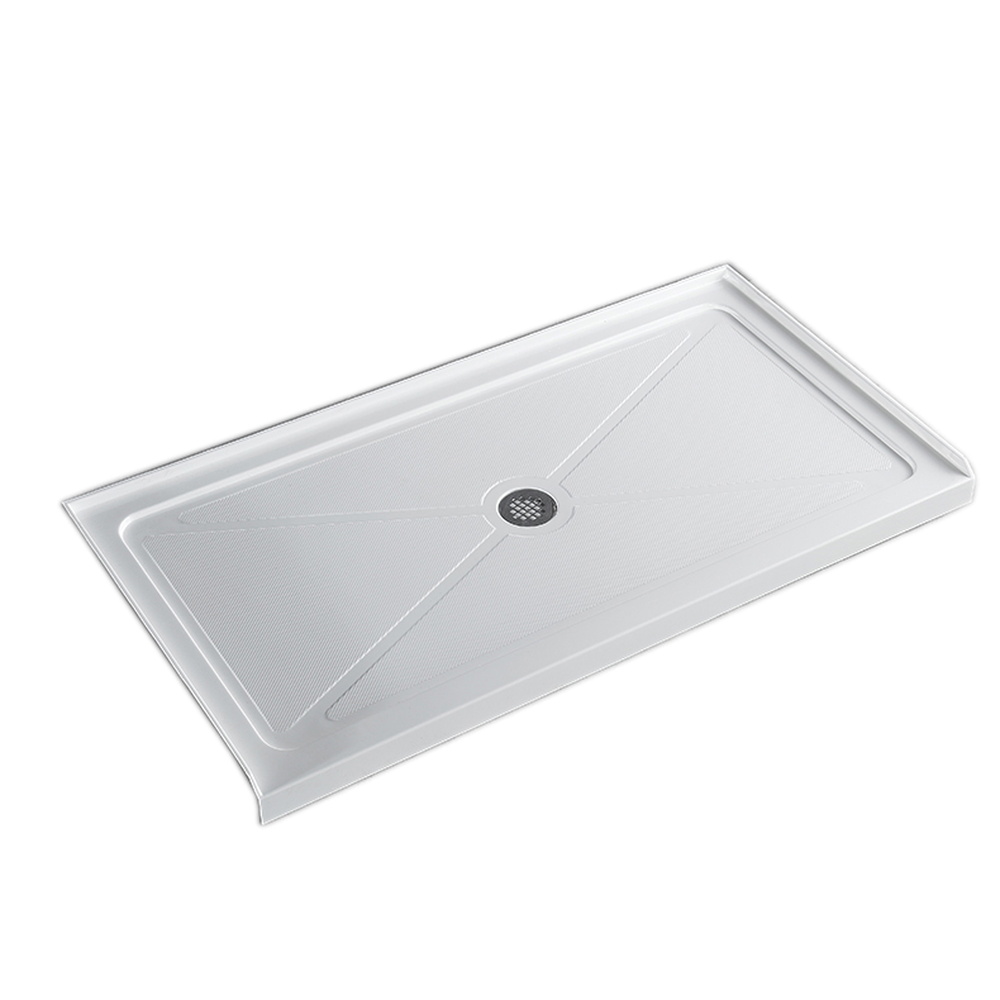Fiberglass shower base: Made from molded fiberglass with a gel coat finish.
- Pros:Lightweight, inexpensive, attractive finish.
- Cons: The color only runs as deep as the finish, which will eventually wear down and stain. Scratches are very noticeable since they are a different color than the surface. When the finish becomes stained, it is difficult to clean. There are fewer color and size options than for other materials.
Acrylic shower base: Made from heat-fitting acrylic over a fiberglass base.
- Pros:Lightweight, easy to clean, durable, available in a wide range of sizes and colors. Because the color goes all the way through, scratches aren’t as visible, and light scratches can even be polished out.
- Cons: Caustic cleaners can cause permanent damage to the surface. It is more expensive than fiberglass.

Solid surface shower base: Made from ground minerals and polymer resins, similar to solid surface countertop materials.
- Pros: Sturdier than acrylic and fiberglass, resistant to many cleansers, luxurious appearance, wide array of design options and can be made in custom or standard sizes and shapes.
- Cons: More expensive than fiberglass and acrylic, though high-quality solid surface is worth the extra investment. It can scratch and chip reasonably easily, although like acrylic, the color goes all the way through, minimizing the visibility of scratches. Light colors may turn yellow after some time. Not all bases come with tile flanges, which makes leaks more likely.
Tile shower base: These can either be built from scratch or built with a precast base, typically made of polyurethane. When buying the tile, always look for materials with a slip-resistant texture.
- Pros: Durable. You have more control over the finished product since you can choose the color, shape and layout of the tiles. Materials can be relatively inexpensive depending on your tile choice, though these savings may be negated by expenses related to hiring a professional installer.
- Cons: Tile grout is more difficult to clean than most shower pan materials. Even with a precast base, tile installation can be time consuming, exact and difficult, so many homeowners will need to hire a professional. Grout needs to be resealed regularly to keep out moisture and so do many tile materials.
Cast iron: Made from cast iron covered in enamel.
- Pros: Elegant look, durable, will not crack, retains heat well, rarely leaks, matches well with cast iron tubs.
- Cons: Expensive, heavy, limited color options, slippery (although a nonslip texture can be added to the metal prior to enameling). Chips in enamel are difficult to repair.
Copper: Made from sheets of copper that are molded to a custom shape.
- Pros: Naturally antimicrobial, attention-grabbing, retains heat well, often made from recycled materials, can be made in any size or shape.
- Cons: Expensive and has to be custom made. Domo warns that copper shower pans are also prone to corrosion and frequently end up leaking.
